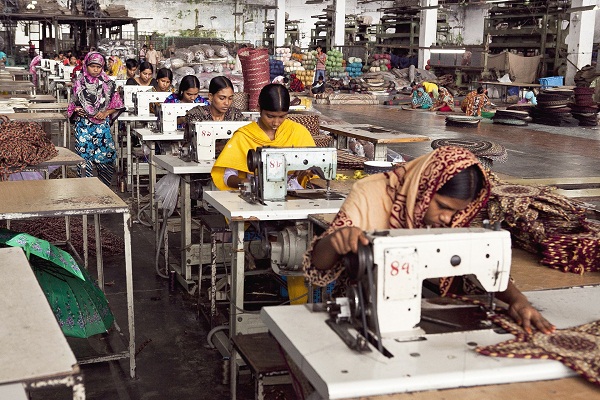GENDER EQUALITY IN GLOBAL GARMENT SECTOR GAINING IMPORTANCE

GENDER EQUALITY IN GLOBAL GARMENT SECTOR GAINING IMPORTANCE
Although global supply chains have been a key entry point for women to enter the formal workforce, especially in the garment segment however, they face numerous problems every day. Among these, gender discrimination, violence and harassment especially for women from poorer sections of society is common. The International Labour Organization's (ILO) recent report in March 2023 focuses on achieving gender equality in global garment supply chains with a more equitable set of policies and actions that could lift millions of workers out of poverty and drive inclusive economic growth.
Addressing workers’ issues crucial The garment industry is a significant source of employment, providing jobs for around 94 million workers globally, and although trends vary, nearly 60 per cent garment workers globally are women, reaching nearly 80 per cent in some regions. Asia is the largest employer of garment sector workers, accounting for 75 per cent of all workers which translates to an estimated 42 million women garment workers.
There are four main challenges that women face in gender inequality at work. The first, is to make their opinions and problems heard with weak social dialogue at both enterprise and industry levels in most countries and there are few that work for the protection of women’s rights. Challenges relate to misperceptions of women’s goals and capabilities, as well as the often unequal share of unpaid care work they undertake in the home. Secondly, women workers are usually disproportionately represented in low-wage jobs in the lower tiers of the sector’s supply chain, and more often than not, they lag behind men in terms of equal pay for work of equal value.
Thirdly, they have to manage their families and work and those with small children and lower education levels, face additional challenges and barriers at the workplace compared to men. Fourthly, they face sexual harassment and violence in the garment industry, both in the workplace and while commuting. And this problem increased during the pandemic due to heightened tensions arising from economic insecurity.
Just Transition phase is required for gender equality.
The ILO report highlights focussing on a ‘Just Transition’ phase where all societies intelligently and specifically address women workers’ needs and create new job opportunities for displaced female workers throughout the garment sector is becoming increasingly important to achieving gender equality.
The garment segment’s heavy environmental footprint requires urgent action, which includes equal pay for work of equal value and transparently across all aspects of garment sector supply chains. Gender equality in leadership, management and decision-making at all levels within supply chains as well as a safe and healthy workplace free of discrimination, violence, and harassment is very important. In Asian countries, there has to be a strong focus on reducing the unpaid care work burden for women through affordable, accessible, and publicly funded childcare services and flexible working hours.
Kering shows the way
Gender discrimination in the workforce is currently a serious global concern and companies across the globe understand this realty. Bloomberg Gender-Equality Index (GEI) 2023 that tracks the performance of public companies committed to disclosing their efforts to support gender equality through policy development, representation, and transparency recognised premium French luxury group Kering, which manages several renowned houses in fashion, leather goods and jewellery. Kering has been included in the index for the sixth consecutive year for its commitment to promote diversity, equity and inclusion.
The GEI represented 484 global companies spanning 54 industries, headquartered across 45 countries and has helped companies to track their progress in gender inclusion and support gender equality through policy development, representation, and transparency.
Kering’s inclusion shows the importance the company gives to supporting women at all levels to ensure that they can achieve their full potential in a supportive and inclusive working environment. With programs that focus on women’s talent and leadership potential while supporting them in an office environment, Kering is leading the way for working women in premium segments also and not just factory workers, creating a more equal future for all regardless of economic barriers, and many other companies are expected to follow soon in their footsteps.
By Fashionating World
https://www.fashionatingworld.com/new1-2/gender-equality-in-global-garment-sector-gaining-importance
